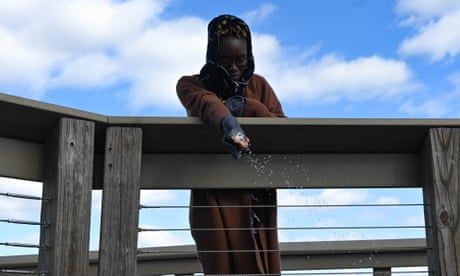
Classes on ‘hoodoo’ connect new generations eager to explore their roots with elders in the South Carolina community
With their eyes downcast in reflection, dozens of people dressed in white crossed a bridge to pay respect to their ancestors last October. They carried flowers, herbs and photos of their loved ones to lay at the foot of an altar on a tiny strip of land in the middle of a pond. For the last few years, this ritual at the start of the annual Gullah Geechee herbal gathering on Johns Island, South Carolina, has served as a link between the living and the dead. “It gives them a sacred space to connect with the land,” the gathering’s founder, Khetnu Nefer, said about the attendees, and to “connect with our communal ancestors”.
Held on Nefer’s family’s land, a stretch of 10 acres (four hectares) of flat grass surrounded by woods, the gathering educates attendees on the herbal traditions of the descendants of west Africans enslaved on the Sea Islands along the south-east US. Over the course of the three-day conference, Black and brown instructors – some of whom are Gullah Geechee – host around 20 workshops ranging from English-based creole lessons to foraging for herbs including chaney root, which is boiled into a tea to heal fatigue or arthritis. During an herbal remedy class, attendees learn which herbs can be used to treat chronic pain, including mullein, a flowering plant that is sometimes boiled into a tea to heal symptoms associated with asthma or bronchitis.
Continue reading...